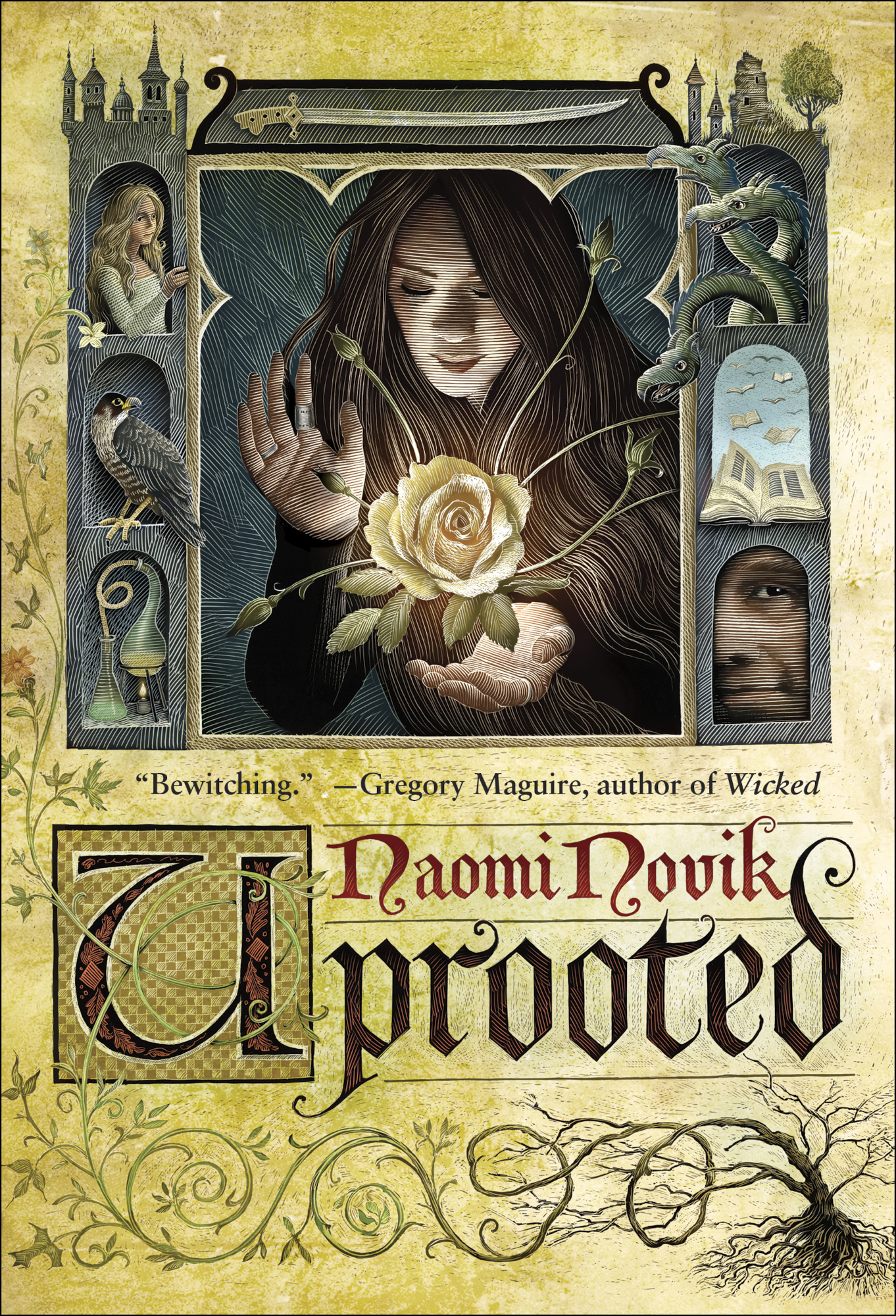Sami Sundell reviewed Uprooted by Naomi Novik
Review of 'Uprooted' on 'Goodreads'
2 stars
Agnieszka is a 17-year old girl living in a small village in the valley. She's part of a special group, for every ten years, the Dragon chooses a girl from the villages as his companion. It's a scary proposition, and unfortunatel for Agnieszka, against all odds, Dragon chooses her.
This starts an epic straight out of fairytales - in some ways literally, since Uprooted borrows from Slavic folklore. It's a story of finding power from within you, of the meaning of co-operation, at places even of love and romance.
It's also a story full of familiar tropes. There's a young woman who is special in some unseen manner. There's an old man who's grumpy and dismissive. There's a clash of personalities, an exasperated teacher, scheming in the court, eventually romance - even if the only way the main characters seem to be able to communicate is through anger. The plot has its twists and turns, but it's built of familiar components and everything seems just too... simple.
The character development is lacking: there's some for the main character, and Kasia is transformed physically as well as mentally, but other than that, there's nothing worth mentioning. Dragon transforms from a master of his domain into an obedient sidekick, but he still stays the same grumpy, hurtful old man throughout the book. Short bouts of lust don't change his overall demeanor. Other characters are paper thin.
Maybe I'm expecting too much, but I would've liked to see more layers. In characters, in development, in everything.
The one layer I did notice - and it's altogether possible I'm reading it wrong - is about gender roles of the magic wielders. The traditional magic wielders are all males, except for Alosha, who's then masculinized by making her a swordsmith and having her act very coldly towards Agnieszka.
That traditional magic is orderly, precise, measurable, and so are the wizards: if something can't be measured, it doesn't exist. This goes so far that some books are removed from library because they don't seem to have value, and (Baba) Yaga, even though having been described as real earlier, is labeled as a folk tale by one scholarly wizard.
The opposite of this is the magic the main character wields. There doesn't seem to be any rules to how that works - she just follows her intuition and everything flows according to her will. Instead of force she uses gentle powers of persuasion to bend elements, people, everything.
You can also read this in a positive way: the magic seems to be the most effective when it's Agnieszka and Dragon working in collaboration, complementing each other. But did it really have to be hard, scientific, enforcing, masculine magic complementing soft, intuitive, persuasive (or manipulative) feminine magic?
The author doesn't seem to set limits on how the magic works in the book. Agnieszka is warned that you can burn yourself out if you use too much of magic, but there's not a moment in the book when that seems to be a real danger, even though particularly the main character seems to use her magic for everything from mundane to earth-shattering. There are no rules, either - she just comes up with all kinds of ideas that just happen to work. As a weird detail, her constant untidiness is plugged to be a manifestation, or a side effect, of her magic abilities. Why?
The way the main character uses her magic also smells of anti-intellectuality. She's partly unwilling and partly unable to learn magic. That doesn't matter, though, since all she has to do is follow her intuition, throw things together, sing a little song, and magnificent feats get accomplished.
If it seems like I'm complaining, that's because I expected more of the book. It's a multiple award winner book with apparently movie on the way. That's as far as my expectations went, though - I didn't even read the back cover.
I did end up wolfing it down, so I can't say that I disliked it. But I expected a fine dinner. Instead, I got bubble and squeak.

